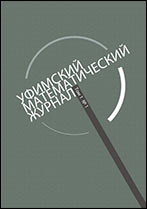|
This article is cited in 1 scientific paper (total in 1 paper)
On divisible quantum dynamical mappings
R. N. Gumerov, R. L. Khazhin
Institute of Mathematics and Mechanics, Kazan (Volga Region) Federal University
Abstract:
In this paper we study quantum dynamical mappings called also quantum processes. The set of values of such mapping is a one-parameter family of completely positive trace-preserving linear operators defined on a finite-dimensional Hilbert space. In quantum information theory such operators are referred to as quantum channels. An important concept for quantum dynamical mappings is their divisibility. There are different types of this concept. The present paper deals with so-called completely positive divisible quantum processes. For two
such processes, which are bijective and satisfy a commutativity condition, we construct a compound quantum process.
It is shown that
this compound quantum process is also completely positive divisible. Endowing a set of quantum channels with the norm topology, we consider
continuous quantum processes and continuous completely positive evolutions. The latter are defined as two-parameter families of quantum channels satisfying additional properties. We prove that a continuous bijective completely positive divisible quantum process generates a continuous completely positive evolution. In order to illustrate the considered concepts and the results on them, we provide examples of quantum dynamical mappings with values in the set of qubit channels. In particular, a completely positive divisible compound quantum process is constructed for two bijective commuting quantum processes.
Geometric and physical interpretations of this compound quantum process are given.
Keywords:
Banach algebra, bijective process, completely positive divisible process, compound process, continuous completely positive evolution, positive divisible process, operator norm, quantum channel, quantum dynamical mapping, quantum process, topological group, trace norm.
Received: 03.12.2021
Citation:
R. N. Gumerov, R. L. Khazhin, “On divisible quantum dynamical mappings”, Ufimsk. Mat. Zh., 14:2 (2022), 23–36; Ufa Math. J., 14:2 (2022), 22–34
Linking options:
https://www.mathnet.ru/eng/ufa608https://doi.org/10.13108/2022-14-2-22 https://www.mathnet.ru/eng/ufa/v14/i2/p23
|

| Statistics & downloads: |
| Abstract page: | 92 | | Russian version PDF: | 32 | | English version PDF: | 10 | | References: | 7 |
|




 Contact us:
Contact us: Terms of Use
Terms of Use
 Registration to the website
Registration to the website Logotypes
Logotypes








 Citation in format
Citation in format 
